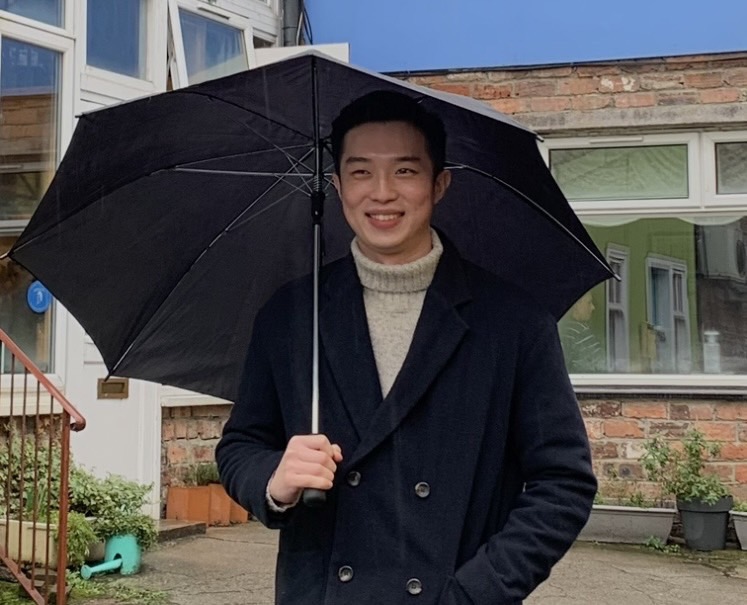Taiwanese pragmatism: President Tsai Ing-wen to meet U.S. House Speaker in California
Despite Beijing’s complaints, Taiwanese President Tsai Ing-wen and her Democratic Progressive Party are adopting a prudent approach to China’s sensitivities, argues DPP supporter Chieh Yen.

U.S. House Speaker Kevin McCarthy recently said that he will meet with Taiwanese President Tsai Ing-wen 蔡英文 (Cài Yīngwén) in the U.S. instead of Taiwan, which confirms information first revealed by a report in the Financial Times.
The request to change locations from Taipei to California, reportedly proposed by the Tsai administration, has been recognized as a “de-escalating decision” by international commentators, and it also signifies that pragmatism plays an important role in the Democratic Progressive Party (DPP) administration’s approach toward cross-Strait relations and foreign policy.
Although opinion polls show that a majority of Taiwanese would welcome a visit by the Speaker, the Tsai administration’s decision displays flexibility, while leaving the door open for potential future visits. When then-Speaker Nancy Pelosi visited Taipei last August, the Chinese government responded with bellicose military drills around Taiwan, escalating tensions in the Taiwan Strait. Thus, the first reason why Tsai’s recent move is seen as cautious is that it limits Beijing’s ability to label the meeting “provocative” and disrupt the cross-Strait status quo. Furthermore, while postponing the date of McCarthy’s visit to Taiwan gives up a chance of having both Democrat and Republican House Speakers in Taiwan in less than a year, Tsai’s alternative plan ensures that she will still have a chance to meet with a leading Republican in the U.S.
The Tsai administration has stressed the importance of preserving peace and stability in the Taiwan Strait ever since Tsai’s inauguration ceremony in 2016. To fulfill this goal, Tsai has improved Taiwan’s ties with democracies through common values and shared interests. Moreover, she has initiated a series of important reforms for Taiwan’s armed forces, including extending compulsory military service from four months to one year to enhance Taiwan’s capability to fend off an attack from Chinese forces.
But because Tsai is not allowed to seek a third term in 2024, some analysts have been concerned about the continuity of her cross-Strait policy. Ongoing discussions have focused on whether the next DPP presidential candidate will adhere to Tsai’s pragmatic approach. However, Vice President William Lai Ching-te (賴淸德 Lài Qīngdé), the presumptive DPP presidential candidate, has repeatedly expressed his commitment to preserving Tsai Ing-wen’s stable approach towards foreign policy and cross-strait relations.
As the vice president of Taiwan, Lai has expressed support for many important policy decisions put forward by President Tsai, including the extension of Taiwan’s military conscription. He has also served several times as Tsai’s special envoy for international delegations abroad. Furthermore, Lai has openly declared that he will adhere to Tsai’s cross-strait policies, including the preservation of the cross-strait status quo, which enjoys broad support among the general public in Taiwan.
More importantly, the DPP has reportedly been considering the inclusion of Tsai’s “Four Commitments” in the DPP’s party charter. Announced during Tsai’s National Day address in 2021, the Four Commitments are a series of principles on managing cross-Strait relations, including: “Our enduring commitment to a free and democratic constitutional system, our commitment that the Republic of China and the People’s Republic of China should not be subordinate to each other, our commitment to resist annexation or encroachment upon our sovereignty, and our commitment that the future of the Republic of China (Taiwan) must be decided in accordance with the will of the Taiwanese people.”
Given that the “Four Commitments” indicate an intention to preserve Taiwan’s sovereignty without challenging the existing constitutional framework of the Republic of China — therefore ruling out a separate declaration of Taiwanese independence — ongoing discussions to include the principles in the party charter indicate a practical approach towards Taiwan’s status.
Some observers regard Lai Ching-te as independence-leaning due to his previous comments about being a “pragmatic political worker for Taiwan Independence.” Yet more emphasis should be placed on the key word “pragmatic.” In fact, over the course of several years, Lai has adopted a moderate approach, stressing that he pragmatically regards Taiwan as already independent, and thus there is no need for a separate declaration of independence. This perspective on Taiwan’s national status is essentially identical with Tsai’s comments during a 2020 interview with the BBC. It is also in line with the DPP’s “Resolution on Taiwan’s Future,” which has served as an important guideline for the DPP’s thinking on cross-Strait relations since 1999. Lai’s evolving views illustrate his awareness of Taiwan’s responsibilities toward maintaining regional stability, particularly in a political environment with high stakes at hand.
The occasion of Tsai’s meeting with McCarthy in the U.S. has shown Taiwan’s international partners that pragmatism lies at the very core of the DPP’s foreign policy. Furthermore, there are reasons to believe that pragmatism and prudence will remain important elements of the DPP presidential candidate’s policy framework. In other words, the DPP will continue to devote its efforts toward maintaining a firm but cautious approach toward managing cross-Strait relations, while continuing to build trust with international partners.






